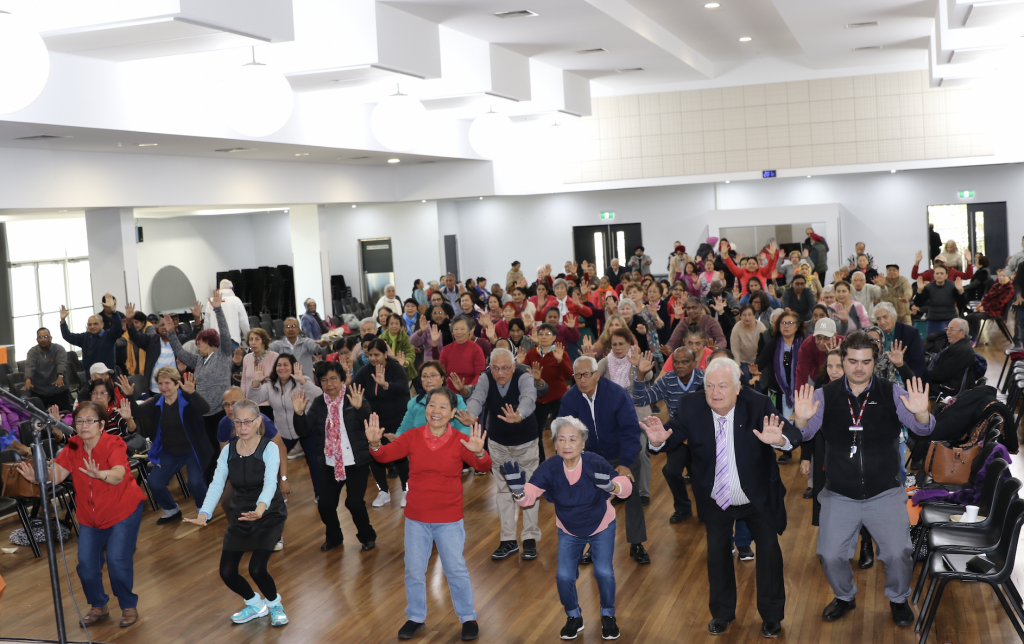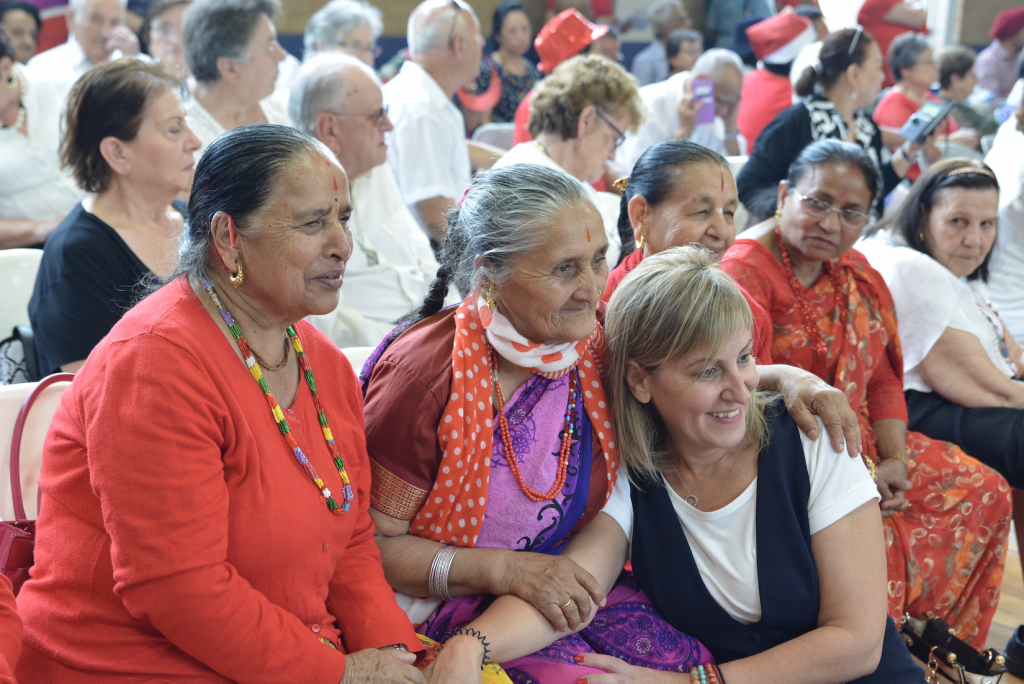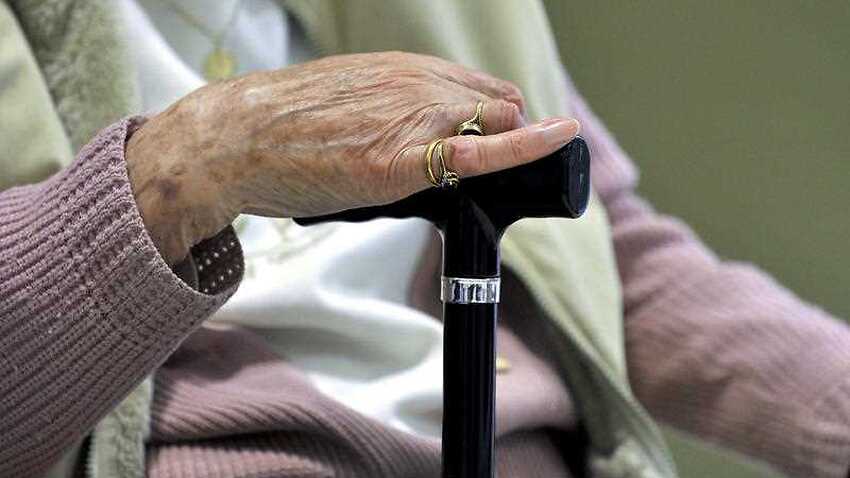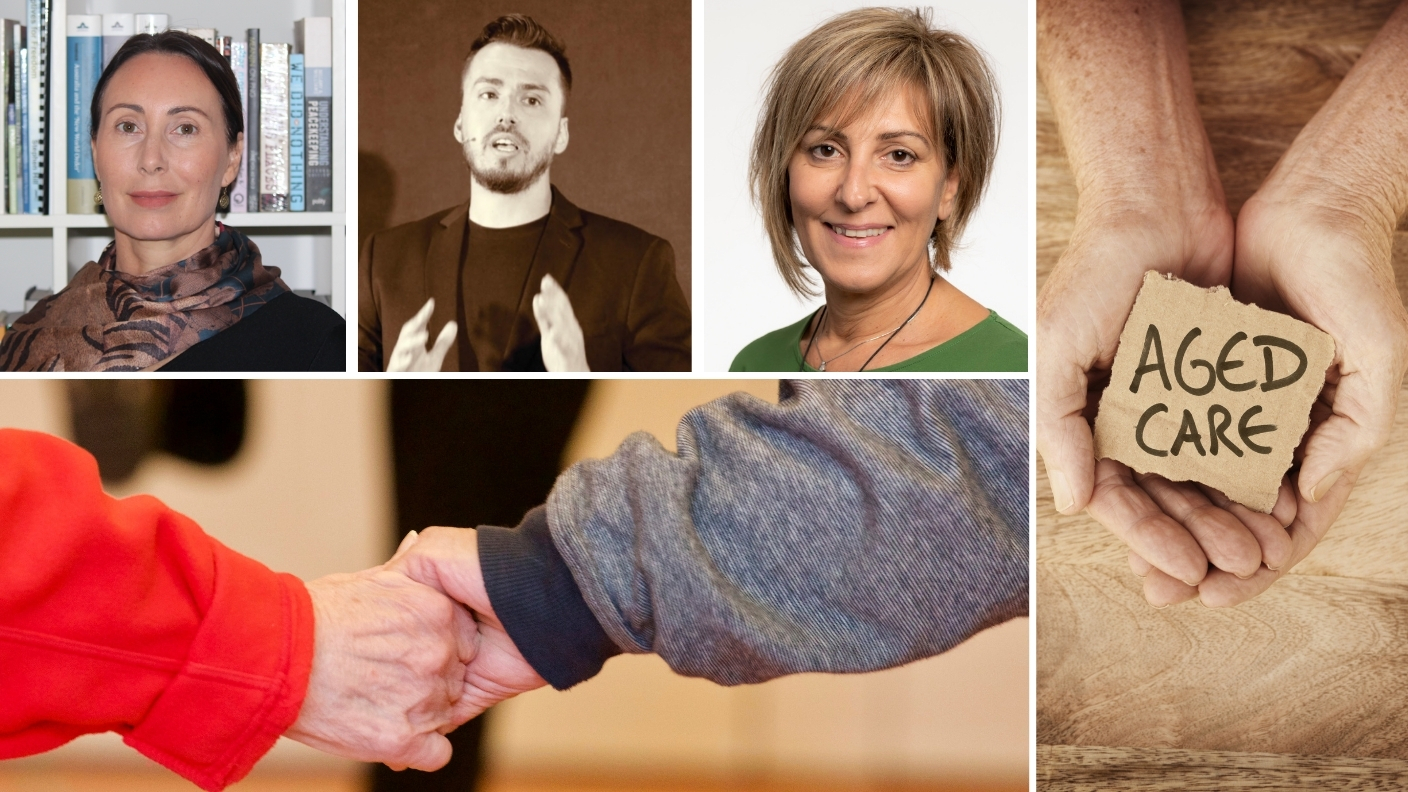As Australia’s population is ageing older adults of culturally and linguistically diverse (CALD) backgrounds feel more socially and emotionally isolated.
Projections for the country suggest that there will be four million people aged between 65–84 years by 2022 and industry experts have raised concerns that a structural reform of aged care is necessary to support the so-called ‘Autumn Sunset’ the country is facing.
A pilot research program between Sydney-based organisations SydWest and Western Sydney University’s Humanitarian and Development Research Initiative (HADRI) explores how societal changes affect CALD older adults and what practices should be adopted to enhance their wellbeing.
The CEO of SydWest Multicultural Services, Elfa Moraitakis; HADRI’s Director, Associate Professor Nichole Georgeou and Humanitarian Engineer Spyros Schismenos sat down with The Greek Herald and discussed the findings of their project and how they can be utilised to improve the lives of Australia’s older citizens.

TGH: What are the objectives of this project?
The project entitled, “Better Elder Care: Culturally appropriate care and service provision for older migrants 65+ in Greater Western Sydney”, explores the effects of activities that promote social connectedness on the cultural wellbeing of older migrants from CALD backgrounds to Greater Western Sydney.
Specifically, it aims to explore the impact of the inclusion of creative expression practices that are culturally and linguistically supportive of older migrants, and opportunities for social participation in cultural practices, on older CALD adults’ cultural wellbeing.
We intend to provide recommendations on the adoption of such practices for the enhanced wellbeing of older CALD background migrants in at-home care packages.
TGH: What are the main challenges older CALD adults face and in what way has the pandemic exacerbated them?
The data collection for this research was conducted after the 2020 lockdown. However, key findings of the research pointed to the significance of ‘vital conjunctions’ in the lives of individuals and communities.
These vital conjunctions are not only between people and communities, but also refer to one’s connection to memories, past histories and future aspirations, spirituality, transitional points throughout their lifetime.
Importantly, these conjunctions play a critical role in the individual and collective agency and decision making; they are facilitative of agency in varying degrees, and yet they can also be restrictive and contain the dimensions of conflict and power.
The participants all highlight how maintaining, transforming, or negotiating their sense of connection – being connected to something bigger than themselves – is crucial to their wellbeing.

COVID-19 exacerbated existing barriers experienced by older CALD adults that affect the capability of older adults to access and engage with the essential support and services that contribute to good outcomes and improved quality of life.
Substantial barriers include a lack of English proficiency, limited digital literacy, lack of networking and socializing, and poor understanding of the Australian ‘way of living’ and sociomedical system. Isolation, including practical, social and emotional, loneliness, depression and stigma are common outcomes when older adults from CALD migrant and refugee backgrounds cannot overcome the aforementioned barriers.
The challenges of ageing and barriers faced by older adults had existed long before the pandemic, however, disaster scenarios such as the global spread of COVID-19 significantly escalated their impacts, and increased mortality rates, depression and suicidal thoughts. Identifying and addressing existing barriers, as well as supporting strategies to minimize them could lead to better elder care and improved well-being for older adults.
In the context of this research, one of the current problems its multicultural aged care workers have encountered in their day-to-day operations is that older migrant Australians in Greater Western Sydney struggle to find care that matches their cultural and linguistic needs.
This mismatch in needs impacts on their cultural well-being and physical care because they may not be comfortable to receiving care from carers who they feel do not have a good understanding of their needs.

TGH: Do the barriers differ for older people of established communities compared to the ones from newly formed communities?
Spyros Schismenos: The literature shows that among the more establish migrant communities in Australia like the Greeks and Italians there is more willingness to allow older migrants to be cared for in managed care facilities. Among more recent migrant communities this is less prominent.
There is little differentiation amongst communities’ settlement experiences, apart from English language capability — those with higher levels of English language capability, and those from cultural groups with cultural practices most similar to, or aligned with the host culture, settled more easily than others.
TGH: What are the current issues with funding and quality in aged care services in Australia?
Elfa Moraitakis: There are no significant levels of culturally and linguistically appropriate care of, or consideration for, the needs for older Australian migrants in the aged care sector, particularly in Greater Western Sydney.
The policy settings for aged care packages have meant that the onus of arranging aged care has fallen onto the aged client and their families. When age, language and cultural challenges compound, it often means accessing appropriate care becomes too difficult and overwhelming to navigate. The unintended consequences of changing the way funding is currently accessed and administered has atomised the way that CALD clients interact with SydWest care staff to have their social needs met.
Likewise, the upcoming reforms mean that providers such as SydWest will not be receiving targeted or adequate funding to cater for socially engaging multi-cultural gatherings. Consequentially, older migrants (including refugees) to Australia may face difficulties in finding meaningful social participation and the joyful social aspects of life.

TGH: How will BEC findings support older adults in Western Sydney and nationally as well as internationally?
Census data shows that the population of Greater Western Sydney is ageing, with large growth in the 55-69 year cohort.
The traditional source of migration is UK, and New Zealand and South Africa are also in the top ten, but there is a growing number of older Australians from CALD backgrounds in our area.
Changes to the sources of migration to Australia —particularly migration from China, India, Philippines, Vietnam — means that the people who migrate as business or skilled migrants now will be needing care in 20-30 years times, however little is known about the care needs of this older and potentially vulnerable CALD population.
Their cultural and language needs must be considered in the care that is provided to them, and the service delivery activities that are designed for them.
TGH: Are there any plans for future collaboration projects between SydWest and HADRI?
Director, Associate Professor Nichole Georgeou: HADRI would like to continue working with SydWest Multicultural Services to extend this research to include other ethnic groups and communities.
Working with SydWest allows Western Sydney University to have a positive impact in our community.
While the study is not yet complete, it’s been a great experience to work with communities in Greater Western Sydney, and with SydWest, the largest provider of at home care packages in the region.
The Better Elder Care project has given us a great insight into the things that concern the CALD communities, and we hope that our recommendations will be taken up by the Federal government and hopefully states will follow.

